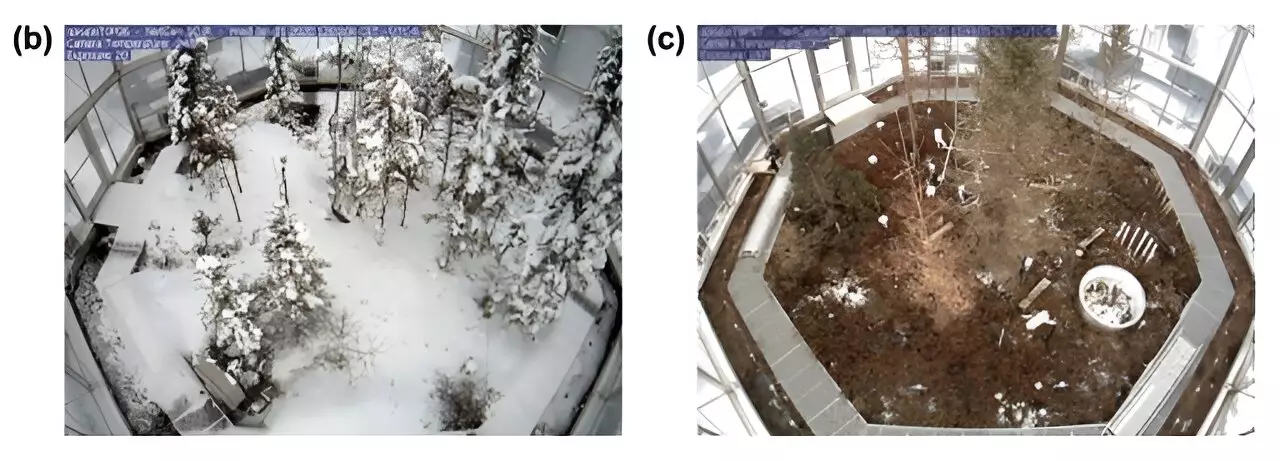The impact of warming temperatures and reduced snowpack on northern forests is more severe than previously thought, according to a recent study led by ecologist Andrew Richardson. This study sheds light on the potential risks and long-term damage that ecosystems in boreal forests could face due to climate change.
One of the key findings of the study is that even slight increases in temperature can lead to a significant reduction in snowpack in boreal forests. This reduction in snowpack results in more light and heat being absorbed into the soil, which further increases ground temperatures. As a consequence, air temperatures rise, snow melts faster, and ecosystems are altered at a rapid pace.
Research Methodology
To understand the effects of temperature changes on boreal forests, the researchers conducted long-term warming experiments in northern Minnesota. Using large experimental enclosures, they manipulated air and soil temperatures to simulate future climate conditions. Through time-lapse photography and historical data comparisons, they were able to assess the impacts of warming temperatures on snow albedo and snowmelt.
Unexpected Results
While the researchers expected that increased temperatures would lead to more snowmelt, the severity of this snowmelt was surprising. Even small temperature increases resulted in a rapid decline in snow cover, leading to changes in plant life and soil ecosystems. This included increased plant stress and mortality, highlighting the vulnerability of boreal forests to climate change.
Implications for Climate Modeling
The findings of this study have important implications for climate modeling. By isolating temperature as the only variable, researchers were able to capture data that are difficult to replicate in the real world. These results can be used to improve current models and better understand the impacts of warmer temperatures on snow cover duration and extent.
While the study focused on boreal forests, its implications extend beyond these ecosystems. Richardson notes that regions like northern Arizona may also experience similar changes in the future, with less snow and more rain. This shift could have significant consequences for local residents and ecosystems, leading to stressed forests and altered winter conditions.
The study highlights the urgent need to address climate change and its impacts on northern forests. With temperatures on the rise and snowpack diminishing, ecosystems are at risk of permanent damage. It is crucial for policymakers, researchers, and communities to work together to mitigate these effects and protect the environment for future generations.


Leave a Reply